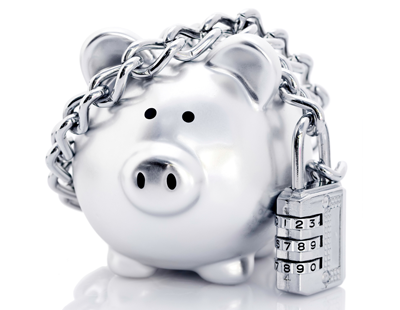According to the largest mortgage lender in the UK, the Halifax, the average price of a property in the UK in October 2020 was £250,457. This represents a 7.5% increase over the October 2019 figures, the largest jump in house prices since the end of 2016.
So, what can we take from these numbers? Does it mean that UK house prices are going to keep steadily rising? Is this boom a blip that property investors shouldn’t rely on, or if you follow the 18-year property cycle, is it the start of an upward trend for the next five-six years?
What are the house price indices indicating?
Both the Halifax and Nationwide (who are the largest building society in the world) publish a house price index each month. Both lenders calculate these indices using the number of mortgage approvals and seasonally adjust the figures to prevent any skewing of the data.
This means that these price indices do not take into account the actual prices paid for properties as the ONS House Price Index and the Land Registry House Price Index do. Despite this, the monthly indices published by the two lenders are reputable and have been running for a long time so they should not be ignored.
According to the Halifax, approvals for mortgages have returned to the levels they experienced prior to the first lockdown. In their opinion, it is a clear indicator that the UK property market is performing much better than experts have forecast since the first lockdown easing.
What are the reasons for the increase in house prices?
The Halifax believes that the main reasons for the increase in house prices after the first down lockdown is down to three things:
-
Pent-up demand due to inactivity during the initial lockdown
-
The stamp duty holiday introduced by the government
-
Some people wanting to move to a larger property, for example one with a garden
During the first lockdown, the UK property market virtually ground to a halt. Nobody was able to view properties, so property investors and private buyers were unable to conduct any transactions. This caused frustration and resulted in the pent-up demand.
The chancellor has introduced a holiday period for stamp duty which extends until March 2021. There are significant savings available here, so it is no surprise that there has been a rush to finalise property transactions after lockdown easing.
During the first lockdown period, a lot of people took stock of their current property situation. Whilst locked down, it became extremely apparent how important space was and, more importantly, outside space. The desire for larger homes, or homes with a garden, has also helped to fuel the recent upward trajectory in house prices.
What do the big lenders think about house prices rising?
These factors suggest that the 2020 house price increases are fuelled by shorter-term reactions to extraordinary situations. Halifax managing director, Russell Galley, certainly believes that the price rise is a short-term phenomenon and that the bubble will burst soon. But it is no surprise that he would hold a conservative viewpoint on this.
Galley stated that he sees downward pressure on the housing market and prices for the medium term. The government’s large furlough scheme is now scheduled to finish at the end of March 2021. There will be a significant increase in unemployment in the next few months, according to economists, which will not help the market.
Nationwide largely support the views of the Halifax, but they did add that there were probably shifts in behaviour during lockdown that were another reason for the recent surge in transactions and increases in house prices.
What do other experts think?
Other housing market experts are not as pessimistic as the Halifax and Nationwide. Guy Harrington, chief execuitve at residential lender Glenhawk, said that there is a seasonal slowdown in the housing market from August onwards and that the pent-up demand due to the first lockdown has defied this.
Harrington believes that the growth in house prices may slow down in the early part of 2021 but not as fast as the Halifax and Nationwide believe it will. He sees the ending of the furlough scheme by the government and the stamp duty holiday finishing as being the major reasons for this.
If there is a further downturn in the UK economy, as many are predicting, then the housing market is not going to come out of this unscathed. Harrington also stated that if there is a “no deal Brexit” then this will further impact the UK housing market.
The EY Item Club, an economic forecasting group in the UK, had a similar view. Their chief economist, Howard Archer, stated that the EY Item Club believes that there will be a lot of pressure on the housing market towards the end of 2020 and into the first two months of 2021. This is despite the house price increases since the first lockdown eased.
Archer suggests that the pent-up demand due to the lockdown will fade fairly soon and that in January/February 2021 house prices could fall 3% lower than they were in October 2020. After this, the EY Item Club believes that there will be a gradual improvement in the housing market due to employment stabilising and a gradual increase in the economy.
Also, Archer believes that the Bank of England will hold any increases in interest rates for at least another year as a way of propping up the housing market. This will help to keep the good mortgage deals going, at least for the foreseeable future.
First-time buyers will still find it difficult
For a while now, first-time buyers have found that it is almost impossible for them to get a foot on the property ladder in the UK. This is not likely to get any easier for them in the next few months.
Trussle head of mortgages, Miles Robinson, said that the number of mortgage products at the 90% loan to value level has significantly declined since the March lockdown. He went on to say that some 92% of the deals available were pulled from the market.
With the current rising house prices, first-time buyers that are able to obtain a good mortgage offer will get less for their money - another barrier. Although Robinson understands the caution of the lenders, he says that the financial industry needs to ensure that any opportunities are there for everyone, including first-time buyers.
Some lenders have taken the decision to restrict the amount of money that they will let people borrow. Examples of this are Nationwide, who have restricted self-employed people to only borrow 4.25 times their earnings when it was previously 4.9 times and Barclays have limited their mortgage amounts from 5.5 times earnings to 4.49.
My opinion on the house prices increases
Experts are not always right. Even giants like the Halifax and Nationwide get it wrong sometimes. They are just stating things as they see them, and many things can change in the next six months or so, that nobody can accurately predict.
However, in my opinion, the over-inflated house prices cannot continue indefinitely and so at some point, around the second quarter of 2021, I believe that house prices will start to fall.
Why do I come to that conclusion? Unemployment, mainly
The government had already extended the furlough scheme for the coronavirus pandemic until the end of October, and has recently extended it further until the end of March 2021 due to the second lockdown. Recently, the Chancellor announced the new Job Support Scheme to take over from the current furlough scheme but this is now postponed.
There are no publicly available figures on the numbers supported by the current furlough scheme or predictions on how many people will fall through the cracks when it comes to an end, but at one stage there were nine million people on it.
The Covid-19 pandemic has had an impact on unemployment in the UK. The most recent unemployment figures available from the Office for National Statistics for June 2020 to August 2020 show a 4.5% unemployment rate which was a slight increase of 0.4% over the previous quarter.
Nobody knows what will happen with unemployment in the next few months but the Office for Budget Responsibility did previously provide two scenarios, which will now change because of the second lockdown and extension of the furlough scheme. Previously, they predicted an optimistic scenario where unemployment reaches a peak of 9.7% in 2020 and does not return to the low levels of before the pandemic until 2022.
In their more pessimistic scenario, they predicted that unemployment levels will peak in 2021 to 13.2% which means there will be around four million unemployed. Even by the end of 2024, the unemployment level will still be at a high of 6.3%.
As I mentioned above, these scenarios are likely to change given the government’s extension of the furlough scheme.
The Bank of England says there is usually an increase in house prices if people believe that their income will rise in the future. This usually means that the economy is good, the majority of people are in work and are confident for their foreseeable futures. Although it might be very simplistic to say, we can also deduce that the opposite is true – if the economy is down then house prices will follow.
As people lose their jobs, more of them get into problems paying their mortgages and the number of repossessed homes rises. Banks start to tighten up their lending criteria through fear of more job losses and mortgage forfeitures. This leads to a drop in housing demand as people cannot obtain the mortgages they need.
We also have the added problems of a 'No Deal Brexit', which could seriously impact businesses in the UK and the deficit caused by the coronavirus needs to be repaid which will no doubt result in higher taxes, thus leading to less money in people’s pockets.
What factors could save the market and keep prices increasing?
If the miracle happens and the downturn in employment is not that significant, the effect on the housing market may be limited. There is also the option of the government continuing the furlough scheme again. But I’m not sure this will be the case.
The current stamp duty holiday is scheduled to end on 31 March 2021. If the housing market is struggling around this time then the government may see fit to extend this to give the market another boost.
PropTech is making it easier for people to participate in and complete property transactions. New software is available to help house purchasers to view properties remotely. In the summer of 2020, Zoopla introduced a remote viewing of properties platform in conjunction with Viewtweet called 'Smart Viewing'. The aim of this is to help people that wanted to view properties from anywhere without coming into contact with anyone else.
So PropTech could also play a key role in keeping the market going.
Conclusion
So, what’s the answer and what does it mean for property investors? Well, I’m sorry to say this, but no-one knows the real answer. Everyone can make predictions and assumptions but that is all they are.
However, I do believe it comes down to the simple theory of economics: supply vs demand. But, there are so many factors; liquidity, affordability, no-deal Brexit, increased redundancies, Covid vaccine, increased taxes, proposed doubling of capital gains tax, seasonal demand, ending of stamp duty holiday, extending the furlough scheme again, etc, etc., that can affect supply and demand over the next six months or so. It's hard to predict with any certainty which way things are going to go.
Personally, I believe the furlough scheme is masking the full extent of the issue. If unemployment starts going up and this leads to defaults in mortgage payments, banks will start to get jittery and they will tighten up on their lending criteria.
Liquidity and affordability start to become issues and this will affect demand. High supply and low demand equals falling house prices.
The government is doing a huge amount to try and sure up the economy, but this cannot continue indefinitely. When the stimulus packages end and the debts need to be repaid, taxes will need to go up and this will have negative results on the economic outlook.
A fall in house prices can be a very good thing for property investors. In many areas of the UK there is still strong demand in the private rental sector and the opportunity to acquire suitable properties at a lower price to support a buy-to-let strategy is appealing.
If you do the correct due diligence and appraisals, a good deal is always a good deal, no matter what is happening in the market. I would recommend erring on the side of caution, and build in some additional margins of around 5-10%. Make sure you have multiple exit strategies and be able to hold onto the property for a while to ride out any drops.
Keep a close eye on house prices and what is happening on the employment scene and any initiatives the government are introducing or extending. There are always opportunities in the housing market and if you sit back and wait for a perfect scenario you are definitely going to miss out.
*Harvey Raybould is a property developer and investor, as well as being the founder and managing director of Kent-based Creative Property Group










.png)









Join the conversation
Be the first to comment (please use the comment box below)
Please login to comment